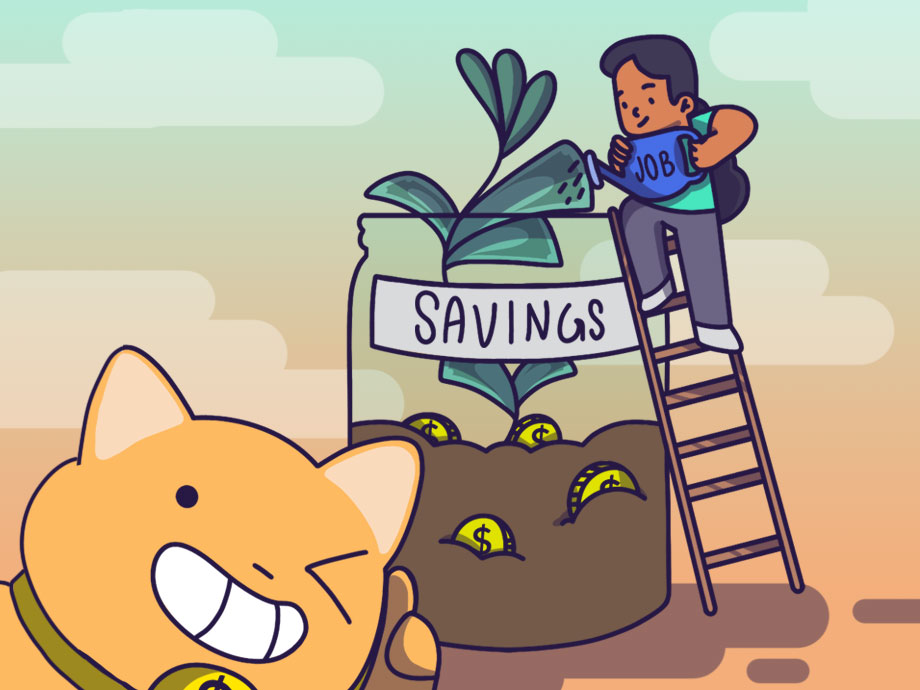Investing | Article
The Beginner’s Guide to Halal Investing
by The Simple Sum | 19 Jan 2021 | 5 mins read

With all the investment options out there, it can be overwhelming to try and make sound choices.
Halal investing doesn’t just apply to Muslims, but can apply to anyone who wants to invest their money responsibly and ethically.
But first, what exactly is halal investing? How does Islamic finance work, and how does it differ from the rest of the world’s approach?
Islamic Law, or Sharia
Islamic finance is differentiated by one thing: Islamic law or sharia. Muslims believe that Allah SWT is the owner of all wealth, and that everyone should handle their money and wealth responsibly, according to the Quran.
If you’re wondering why information on Islamic finance seems sparse at best, it’s probably because the practice is less than fifty years old.
Here’s a little history lesson for you:
Banks and financial institutions were introduced in Muslim countries during the colonial era, where the Western concept of interest began to permeate Muslim spaces. Independence movements began in the 1940s and 1950s; religious scholars began to condemn the use of interest and put forward the idea of risk-sharing instead, based on the Quran. In the 1960s, this began to take place in Egypt and in Malaysia.
What are the principles that govern Islamic finance and differentiate it from non-Halal banking and investing?
The Principles of Halal Investing and Islamic Finance
- Interest is prohibited (riba)
- Avoid uncertainty-based transactions (gharar)
- Avoid gambling (maysir or qimar)
- Avoid prohibited industries such as weapons and tobacco
How Do You Make Money From Halal Investing?
Pretty straightforward principles, right?

Halal investing is, without a doubt, a very reliable and ethical way for a person to grow their money. Because of the belief that one shouldn’t make money from money, sharia-compliant institutions aren’t big fans of speculative investing (gharar) — so futures and options are out.
Instead, halal investing focuses on assets that are grounded in reality, such as real estate, cash assets, commodities, businesses, and stocks. Coupled with the fact that halal investing tends to steer clear of harmful or prohibited industries, it’s not surprising that Islamic banks and institutions were able to resist the shock of the 2008 financial crash.
We’ll explain how each asset class works in tandem with Islamic laws below.
Real Estate
Traditionally, a person would most likely buy a property and rent it out on a monthly basis, thus earning back the money invested in it. Eventually, the landlord (that’s you) will earn back more than the principal amount paid in rent.
Alternatively, a person could also invest in real estate investment trusts (REITs) and pool money together with other investors to invest in a pool of commercial properties. The returns from these properties being used and rented out will then go back to the investors in the form of dividends.
Of course, this comes with a caveat: No shady or haram activities are allowed to be conducted in these properties.
Commodities
Most metals such as gold or silver can be purchased and traded via ETFs, where a typical investor can buy shares that represent ownership over these commodities. As the value of these metals rise over time, an investor will be able to make money without having to contend with interest, which is haram.
Equities (Businesses, Stocks)
Stocks and shares from businesses are the bread and butter for the average retail investor. But it’s only considered halal investing if the business in question is deemed halal. If it sounds troublesome, it’s actually quite simple (and there are indices on the market that compile halal businesses as well): if a business dabbles in alcohol, pork, or tobacco, or anything else deemed haram, then they’re not viable for a halal investor.
Of course, this is not always so clearly defined for every business. In fact, there’s been ongoing debate about whether or not Tesla is a halal company.
The Concept of Sukuk
Halal investing also involves something called Sukuk – which is an alternative to bonds and fixed income assets (which are not halal, because interest is involved). How does Sukuk work, exactly?
A group of investors are pooling money together for a company. The agreement between the company and its investors is a fixed percentage of profits being returned to the investors, instead of typically having them profit from the interest rate that comes with buying bonds. Upon the maturity of a Sukuk investment, the investors will also receive their principal amounts back.
While Islamic finance and halal investments make up only 1% of global financial assets today, it’s still an area of finance that is expanding quickly. Sharia-compliant assets are continuously growing and will hit $3.5 trillion by 2024 – which isn’t too far off from where we are right now!
Islamic finance and halal investing aren’t just for people who adopt the Islamic faith – in fact, halal investing seems to steer pretty close to ESG investing, which focuses on ethical investments that have to do with protecting the environment and preserving the integrity of good organisational governance (see: employee treatment).
For those looking to ethically invest (and maybe make the world a better place), the principles that govern halal investing and Islamic finance definitely align.
Sidenote: If you are Muslim, you are also required to pay zakat on any investment. Giving zakat, or charitable alms, is one of the five pillars of Islam, and funds collected from zakat are redistributed to help the needy.
There are indices out there (like this one) that contain companies that respect the values and beliefs of other faiths as well, like Christianity. All this just to say: You don’t have to betray your values or moral compass to be able to invest like everyone else.















